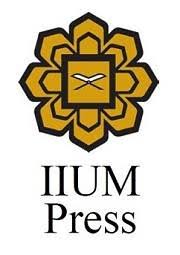Mental Health and Psychotherapy: A Comparison between Western and Islamic Scripturally Based Psychologies
DOI:
https://doi.org/10.31436/alburhn.v3i2.139Keywords:
Mental health, psychotherapy, Western psychology, Islamic psychology, comparative psychologyAbstract
Advancement in the way of life and urbanization have brought many great changes in the psychological well-being of people in many parts of the world. The need to be materially affluent has pushed people in the urban settlements to unnecessary stress, anxiety, conflict, dilemma, and a whole lot of other adverse psychological states of mind. Due to these psychological problems, at times, people who mainly live in the cities, respond to these situations in a negative way ignoring completely the religious and ethical principles in life. In light of this situation, this research would like to explore the concepts of mental health and psychotherapy showcased by some selected schools in the Western mainstream psychology and Islamic scripturally based psychology. Particularly, ideas advocated by Freudian Psychoanalysis, Radical Behaviourism and Humanistic Psychology will be compared with Islamic psychology. For a better understanding on issues related to mental health, this research will marginally deal with the subject of human nature confined to the scope of this research. It is hoped that a proper understanding of the concept of mental health and its management could help people to lead a meaningful life, i.e. finding peace and harmony within themselves and in the external world. As a qualitative research, the researchers will utilize the textual-analysis method in analysing relevant data to this research.
Downloads
References
Abdul Razak, M.A. (1997). Human Nature: A Comparative Study Between Western And Islamic Psychology. Kuala Lumpur: IIUM.
Abdul Razak, M.A. (2013). Iqbal’s Theory of Personality: A Contrastive Analysis With Freud. Saarbrucken: Lap Lambert Academic Publishing.
Ahmad, Absar. (1992). Qur’anic Concepts of Human Psyche. In: Ansari, Zafar Afaq (ed.). Quranic concepts of human psych Islamabad: International Institute of Islamic Thought (Pakistan).
Amjad, Naumana. (1992). Psyche in Islamic Gnostic and Philosophical Traditions. In Ansari, Zafar Afaq (ed.). Qur’anic concepts of human psyche. Islamabad: International Institute of Islamic Thought (Pakistan).
Ansari, Zafar Afaq. (ed). (1992). Qurʾanic Concepts Of Human Psyche. Islamabad: International Institute of Islamic Thought (Pakistan).
Badri, Malik Babikir. (1979). The Dilemma of the Muslim Psychologists. London: MWH London Publishers.
Badri, Malik Babikir. (1995). Success with Islamic Counseling and Psychotherapy. Paper presented at the 4th National Seminar on Islamic Counseling. Islamic Centre of Malaysia, Kuala Lumpur, 26th August.
Burger, J.M. (1986). Personality: Theory and Research. Belmont: Wadsworth Publishing Company.
Corey, G. (1986). Theory and Practice of Counselling and Psychotherapy (3rd. ed.). California: Brooks/Cole Publishing Company.
Ewen, R.B. (1993). An Introduction to Theories of Personality. New Jersey: Lawrence Erlbaum Associates Publications.
Fadimen, J. & Frager, R. (1994). Personality and Personal Growth (3rd. ed.). New York: Harper Collins College Publishers.
Haeri, Shaykh Fadhlalla. (1989). The Journey of the Self. London: Element Books Limited.
Haq, Manzurul. (1992). The locus of human psyche. In Ansari, Zafar Afaq (ed). Qur’anic Concepts of Human Psyche (pp.57-67). Islamabad: International Institute of Islamic Thought Pakistan.
Imam al-Nawawi. (1405/1984). Sahih Muslim bi-sharah al-nawawi. 3rd edition, Beirut: Dar Ihya’ al-Turathal-‘Arabi.
Khan, Muhammad Muhsin. (1986). The Translation of the Meanings of Sahih al-Bukhari. (6th ed.). Lahore: Kazi Publications.
Langgulung, Hasan. (1981). Beberapa Tinjauan Dalam Pendidikan Islam. Kuala Lumpur: Penerbitan Pustaka Antara.
Langgulung, Hasan. (1991). Kreativitas dan Pendidikan: Analisis Psikologi dan Falsafah. Jakarta: Penerbit Pustaka al-Husna.
Morris, C.G. (1990). Contemporary Psychology and Effective Behavior (7th edn.).New York: Harper Collins Publishers.
Najati, Muhammad ‘Uthman. (1406/1985). Al-Qur’an dan Ilmu Jiwa. Usmani, Ahmad Rofi’. (Trans.). Bandung: Penerbit Pustaka.
Stevenson, L. (1987). Seven Theories of Human Nature. New York: Oxford University Press.
Internet Sources:
Mental Health: Strengthening our Response, Retrieved on the 7th of January, 2016, http://www.who.int/mediacentre/factsheets/fs220/en/
Downloads
Published
How to Cite
Issue
Section
License
In general, reusing or reproducing substantial portions of al-Burhān content requires permission. This includes the use of text, figures, tables, multimedia content, and any other material published in any issues of al-Burhān Journal of Qur'an and Sunnah Studies. For some instances, al-Burhān may make its content freely viewable; however, such material may require permission for reuse. To seek permission, please contact the editorial.









